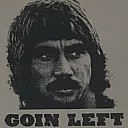Sign of the Times

Stuart Nettle January 13th, 2010 This week Manly Council erected signs along the beachfront advising proper surf etiquette for surfers. They are reportedly in response to an increase in surf rage. A couple of years ago I hosted a Canadian friend who was staying in Australia. Besides being mistaken for an American everywhere she went, the other thing that really annoyed her about Australians was the amount of signs we erect. Cluttering neighbourhood streets, blocking the view on the Great Ocean Road, littering the urban landscape, we put signs up to guide and regulate every activity we do. Considering the similarities between Australia and Canada - both former colonies that gained independence and are now economically, socially and politically stable - I had no explanation for this cultural quirk of ours. But I struggled toward a hypothesis... The one notable difference between Australia and Canada is that Canada was never a penal colony. They never had convicts while, of course, we did. It might've been 200 years ago but there are certain national traits that have been passed down to us from our convict forebears. The tall poppy syndrome, or fear of success, whatever you want to call it, being one of them. This has always been part of our national makeup and I believe its seeds were sown in the convict mentality: 'don't rise above the precipice, we're stronger as a group'. It manifests itself as 'mateship' now. Call this a stretch, but I reckon our propensity to erect signs is another vestige of our convict past. Painting with a broad brush, I think there is still a streak of anti-authority running through Australian life. Call it larrikinism or rebellion but, generally speaking, we still have a bit of trouble listening to authority. Someone tells us not to do something, we instinctively go and do it. Even if we risk danger in the process. We can thank the English, and our convict past for this. However, while Old Blighty played a leading hand through our culturally formative years, it's the smothering influence of America that we currently respond to. America with it's emphasis on money and power and status, acquired by any means necessary. Now, what happens when a society with an inclination to breaking rules comes up against American-style litigation? That's right, a bucketload of lawsuits. And the only way for organisations controlling the public domain to cover their arses and avoid lawsuits is to erect signs. When word of mouth and assumed knowledge fail in court, a sign stands up as tangible evidence so the defendant, be it a council or public organisation, can repudiate liabilty. They are a safety mechanism against rule-breaking, money-making punters. Unlike my Canadian friend I personally think we should be happy with them, they are a signpost to our cultural heritage. Let's put more signs up!

